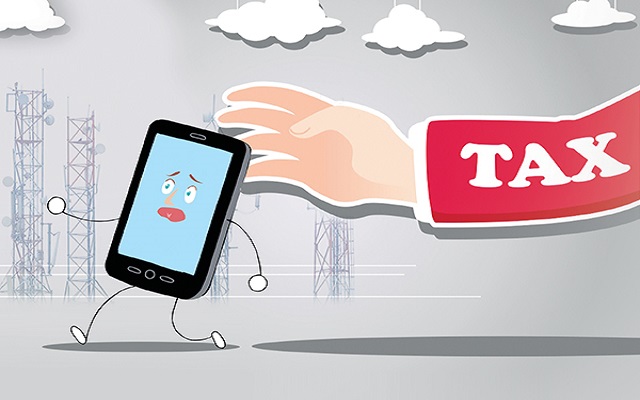The Role of Taxation in Reshaping ICT Industry

The telecom and IT industry is currently the most profitable sector that has contributed a substantial share in country’s economy over the years. Especially after the start of 3G and 4G services the growth has increased many folds. Over the last decade, mobile sector has enabled more than 48 million subscribers to gain access to mobile broadband and related transformative technologies. This increased access to mobile broadband services is bringing wide range of benefits to the overall economy of the country.
Over the last decade, mobile sector has enabled more than 48 million subscribers to gain access to mobile broadband and related transformative technologies
A number of studies suggest that increase in mobile penetration will also lead to an increase in GDP and economic growth. Studies by Ovum, Ericsson, and ONS also suggest that every job created in Pakistan mobile sector, around 10 jobs are created in the wider economy.
Mobile sector has become a significant contributor to the socio-economic growth of Pakistan. The government also recognizes the key role of ICT in economic competitiveness and greater social inclusion through tech revolution. However, Taxation has always been a bone of contention between the government and industries. Every year government modifies its taxation policy, in FY 2017-2018 government of Pakistan once again revised its tax policy. The latest taxation policy sparked distrust from the industry. In this year’s budget, the government added the regulatory duty of PKR 250 every on mobile phone imported in the country. Moreover, it also merged the middle and lower duty slabs into one single slab of PKR 650. The government is of the view that this initiative will reduce the dispute on the categories of smartphones and will also increase mobile penetration in the country. However, the industry doesn’t agree with government’s point of view.
The latest taxation policy also sparked distrust from the industry. In this year’s budget, the government added the regulatory duty of PKR 250 on every mobile phone imported in the country
Previously, the taxation on imports of mobile phones was categorized under three main headers:
- Feature phones @ 300 PKR sales tax
- Entry level basic smartphones that run on Android with a price range starting from 4,000 rupees @ Rs. 1,000 Sales tax
- All high-end smartphones @ Rs. 1500 sales tax
Under its new policy, government merged sales tax rate of 300 PKR and 1000 PKR per set into 650 per set
Under its new policy, government merged sales tax rate of 300 PKR and 1000 PKR per set into 650 per set. In addition to that, the government also changed the custom duty of PKR 250 into regulatory duty. This didn’t affect the high-end smartphone much but for feature phones, it meant more than 100% increase in taxes. This apparently minor change in the taxation regime impacted mobile imports especially its impact on feature phone imports is colossal. The upgraded tax structure for a feature phone import is now something like this:
- Sales tax of 650 PKR + Regulatory Duty of 250 PKR + 14% other regulatory duties = total import taxes
These unmerited taxations are in direct contradiction with its aim to increase digitization in the country. The government implemented new taxes with the aim to inflate its revenues but after the new taxation, the prices of feature phones hiked and imports of bar phones decreased from 2 million to 700 thousand per month hence, killing the local players. Such measures may also encourage imports through grey channels and result in tax evasion and smuggling. Unbalanced taxation can drive short-term benefits for the government but in the long run, they are not only counter-productive for the industry but also for the overall economy of the country.
Pakistan is a country where 29.5% population lives below the poverty line which makes approximately 55 million people. Also, being a developing country and comparatively nascent to the technology revolution, expensive gadgets and technology will mean less or delayed purchases.
The government implemented new taxes with the aim to inflate its revenues but after the new taxation, the prices of feature phones hiked and imports of bar phones decreased from 2 million to 700 thousand per month
In a country of 200 million people, there are 144 million mobile subscribers and around 44 million mobile broadband subscribers. So, the potential for growth is humongous; initiatives that hamper this growth should be avoided at any cost. There are number of things that government needs to focus on in order to improve its tax policy, for example, there is no clear-cut policy for Completely Knocked down (CKD) and Semi knocked down (SKD) conditions of goods. Neither there are any clear tax policies for manufacturers, importers, and assemblers.
Being a developing country and comparatively nascent to the technology revolution, expensive gadgets and technology will mean less or delayed purchases
The government plans to promote local manufacturing and assembling of mobile phones but unless there are straightforward policies, companies will not take the risk of investing. Also, these policies need to be encouraging and supportive for new businesses to motivate the national and international companies. CPEC is a historical initiative and the eyes of the whole nation are on it. The government is offering a number of benefits to facilitate and promote businesses, special economic zones (SEZs) have been planned to be created on various point throughout the entire corridor.
The government plans to promote local manufacturing and assembling of mobile phones but unless there are no straightforward policies, companies will not take the risk of investing
The tax policies for SEZs are different from rest of the country that offers special incentives to the businesses. The rules should not be exclusive for SEZs only, rather similar kind of incentives are needed to be offered to rest of the country as well; it will bring richness to all industries including telecom and IT.
Talking specifically about mobile phone taxation, it is crucial to promote the industry by making entry-level smartphones affordable to the masses. At the same time, feature phone market also needs tax considerations from the government. Even today, when 3G and 4G mobile penetration is increasing at a steady rate, more than half of the mobile-phone imports comprise of feature phones. If tightened, and unfair taxes are imposed on feature phones, instead of an increase in smartphone uptake it will hinder mobile-phone penetration in the country.
We are a developing country in every aspect and to reach Singapore’s level of 100% smartphone penetration, we need friendly policies for smartphones rather then forcefully killing feature phone market. By rationalizing these taxes on the mobile sector not only digital and financial inclusion will be increased but at the same time, it will improve economic growth of the country. Furthermore, it can also generate higher tax revenues through more efficient broader-based taxation and investment facilitation to further expand mobile eco-system.
Even today, when 3G and 4G mobile penetration is increasing at a steady rate, more than half of the mobile-phone imports comprise of feature phones
PTA Taxes Portal
Find PTA Taxes on All Phones on a Single Page using the PhoneWorld PTA Taxes Portal
Explore NowFollow us on Google News!





